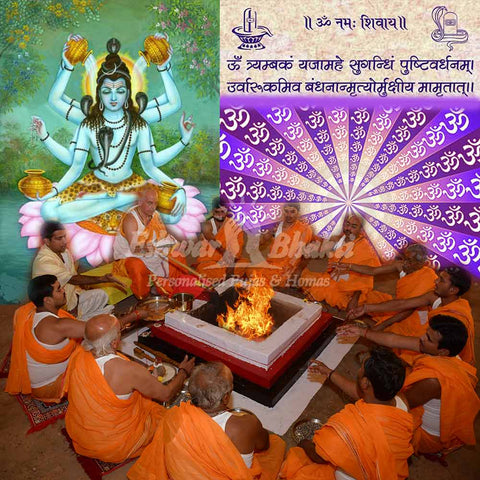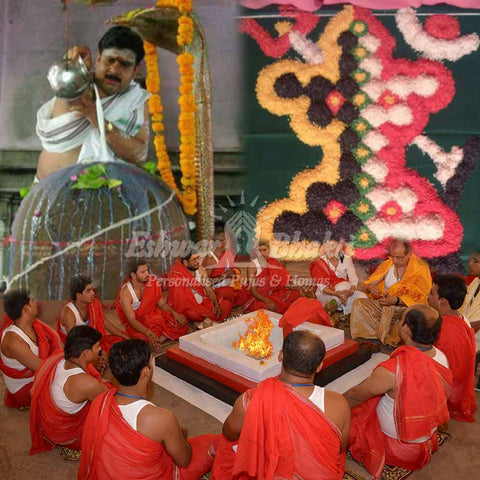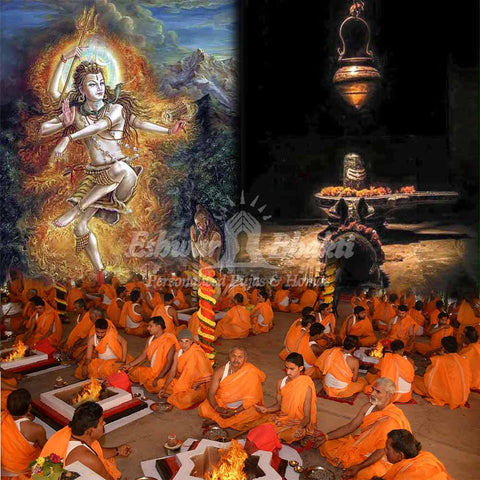Maha Shivratri
 Shiva (means auspicious) also called Mahadeva (means Great God) is the supreme god of Hinduism. And Maha-Shivaratri (Great Night of Shiva) is the most important sectarian festival of the year for Shaivites. It is the most sacred festival of Shiva that falls on the fourteenth (Chaturdashi) day of the dark half (waning phase of the moon -Krishna Paksha) of the Hindu month of Phalguna (February – March). Lord Shiva is formless, shapeless, and timeless, and one of the most revered Hindu deities. It is believed that worshipping Lord Shiva on Maha Shivratri is the easiest way to attains salvation.
Shiva (means auspicious) also called Mahadeva (means Great God) is the supreme god of Hinduism. And Maha-Shivaratri (Great Night of Shiva) is the most important sectarian festival of the year for Shaivites. It is the most sacred festival of Shiva that falls on the fourteenth (Chaturdashi) day of the dark half (waning phase of the moon -Krishna Paksha) of the Hindu month of Phalguna (February – March). Lord Shiva is formless, shapeless, and timeless, and one of the most revered Hindu deities. It is believed that worshipping Lord Shiva on Maha Shivratri is the easiest way to attains salvation.
Hindu devotees stay awake the entire night on this auspicious festival. They perform puja, aarti, chant Vedic mantras, Siva Chalisa, practice sadhana, and meditation. These sacred practices bestow a sense of peace and positive vibration to live a blissful life.
Meaning of MahaShivratri:
“Maha” means great.
“Shiva” means auspicious.
“Ratri” means that which gives rest, and comfort.
“Mahashivratri or the great night of Shiva” is the night of that transcendental divine consciousness which gives relief from all three types of problems, i.e. adhyatmik, adhibhoutik, and adidaivik as well as awakens every particle of our body towards truth, love, beauty, peace, and benevolence - the ethereal qualities of Shiva.
Significance of Maha Shivaratri:
• According to the lunar cycle, 12 Shivaratris occur in a year, out of which the Maha Shivaratri is considered to be the most auspicious one. Ancient seers of India describe that offering prayers to Lord Shiva while staying awake on this divine night is helpful to develop inner consciousness.
• Astrologically, on this holy day, the sun and moon come in a particular alignment which is helpful to elevate the mind. Indian astrologers advocate that this auspicious day is congenial for spiritual practices, meditation, and for natural upsurge of energies in our spine.
• Lord Shiva and Goddess Parvati got married on this day. Devotees worship Shivalinga with milk, water, and honey and decorate with different flowers and BelPatra. Devotees celebrate this festival with great serenity, observe a complete fast to seek the blessings of the Lord.
• There is absolutely no difference between the individual soul and Lord Shiva. And Mahashivratri is the perfect day to celebrate the Shiva tattva (principle/ energy) in us. Spiritual seekers love to meditate on Mahashivratri which is helpful to understand the higher truths of life.
• The Shiva Purana says that a person who fasts on this divine day can reap the benefits of a whole year’s rigorous prayers.
Maha Shivaratri Rituals: On this auspicious day of Mahashivaratri, after completing the morning routine, devotees should take a Sankalp to observe a full-day fast and should break it only after the final aarti in the mid-night or on the next day after taking bath. On this day, devotees should take a second bath in the evening before visiting a temple of Lord Shiva. Shivaratri puja can be performed one time or four times during the night while offering water, milk, curd, honey, flowers, and Diya. Devotees stay awake all night and spend the darkest night in Shiva temples while listening to stories of Lord Shiva, singing songs/ bhajans, and chanting mantras to praise Lord Shiva and to receive His graceful blessings.
Mantras to chant on Shivratri:
• Panchakshari Shiva Mantra: Om Namah Shivaya
• Rudra Mantra: Om Namah Bhagavate Rudraya
• Rudra Gayatri Mantra: Om Tatpurushaya Vidmahe Mahadevaya Dhimahi Tanno Rudrah Prachodayat
• Maha Mrityunjaya Mantra: Om Tryambakam yajaamahe sugandhim pushtivardhanam, Urvaarukamiva bandhanaan-mrityormuksheeya maamritaat
Legends of Maha Shivratri: Hindu sacred scriptures describe a number of popular legends related to the auspicious festival of Mahashivaratri. These legends explain the importance of this day and also throw light on the greatness of Lord Shiva and His supremacy over all other deities.
• According to Hindu Mythology, the holy river Ganga descended from the heavens. On this divine night of Shivaratri, Lord Shiva held out His thick matted hair to hold the Ganges and softened Ganga’s journey towards the earth. And for this reason, devotees celebrate this day by offering the holy Ganga water on Shivalinga.
• According to another story, it marks the day when Lord Shiva married Goddess Parvati. The Shivratri legend also says that observing a day-long fast and worshipping Lord Shiva with great vigor can destroy all bad karmas and bring miraculous changes to the life of a devotee.
• According to Shaivites, Shivratri is celebrated to express gratitude to Lord Shiva who saved the world from the poison that emerged from the Khirsagar (sea) during Samudra Manthan. It is believed that the merciful Lord Shiva drank the poison and stored it in his throat--which made his throat turn blue (due to this reason He is called by another name Neelkanth).
• A story from Shiva Purana narrates: one-day Goddess Parvati asked Shiva that His devotees perform various rituals to please Him, but which one actually pleases him the most. To this, the benevolent Lord Shiva replied that the 14th night of the new moon, during the month of Phalgun is His favorite day which is celebrated as Shivaratri. On this day devotees observe strict spiritual discipline as well as offer Him bel-leaves and Gangajal and these leaves and water are most precious to him than all other offerings. Knowing this, Goddess Parvati was extremely happy and she narrated the same to Her friends. Through them, the word spread all over the creation just like wildfire, and devotees of Lord Shiva began to celebrate Shivaratri by fasting and by performing the ceremonial baths of GangaJal and making offerings of bel leaves.
Summary: Hindus celebrate the festival of Maha Shivaratri on a humongous scale. Some devotees celebrate the festival during the day, while others celebrate it throughout the night by organizing Jagran (staying awake), singing religious hymns, listening to stories of Lord Shiva. Most devotees observe a strict fast for a day and break the fast after offering prayer to Lord Shiva the next day. Vedic texts advocate that this divine night brings a sense of deep serenity and benevolence, and chanting of mantras and meditation done on this day is a hundred times more effective.



